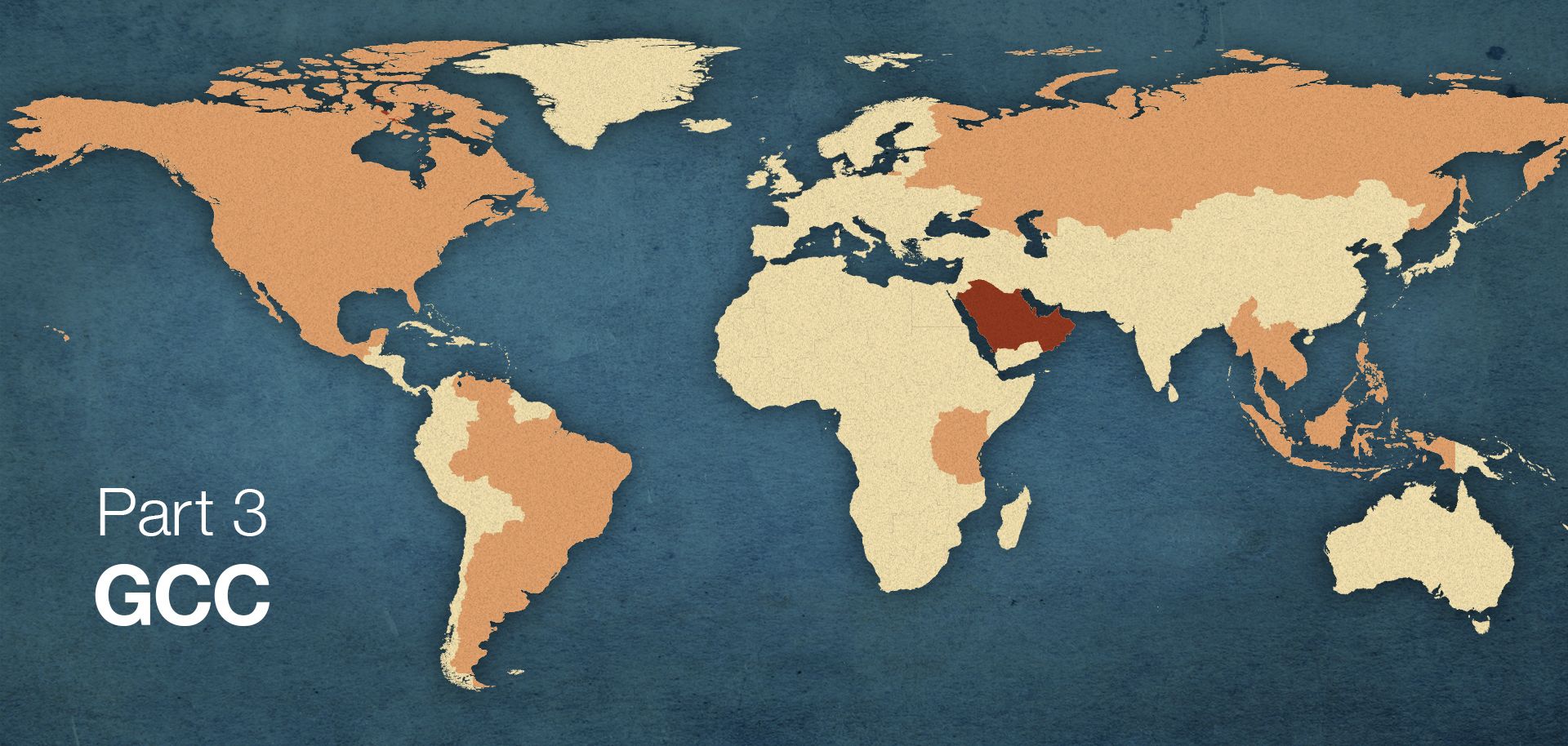ASSESSMENTS
The Gulf Cooperation Council: Finding Safety in Numbers
Sep 14, 2016 | 09:15 GMT

(Stratfor)
Summary
Editor's Note: This is the third installment of a seven-part series examining how the world's regional economic blocs are faring as the largest of them — the European Union — continues to fragment.
One of the primary purposes of the founding of the Gulf Cooperation Council (GCC) was to promote cooperation among the energy-reliant economies lining the Persian Gulf. In reality, however, its members' shared security interests are what binds them together. Regional instability and the need for protection from their Shiite neighbors, rather than oil and natural gas, will continue to unite the Gulf states in the coming years.
The bloc's path will not be easy, though. Issues of succession, competing diversification strategies and differing foreign policy visions will fuel the rivalry that divides the GCC's members. Even so, the Gulf states recognize that they are stronger — and safer — together than they are apart, an awareness that will ensure that the organization forges steadily ahead in spite of the dissension from within.
Subscribe Now
SubscribeAlready have an account?
